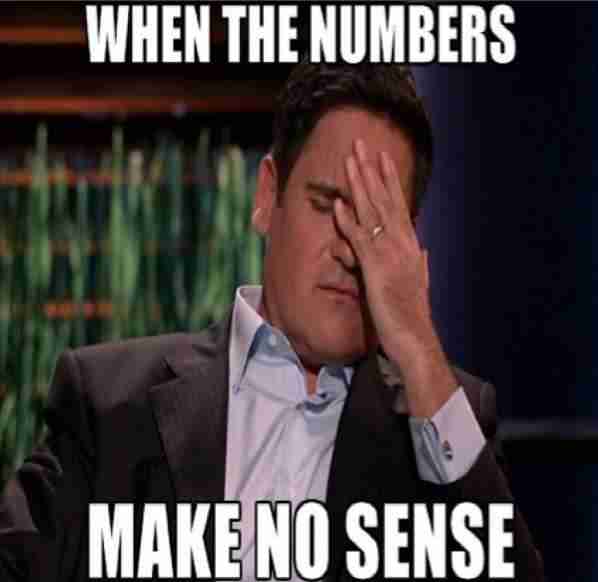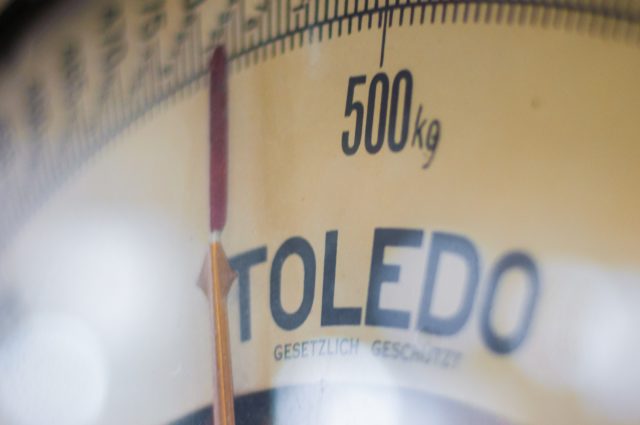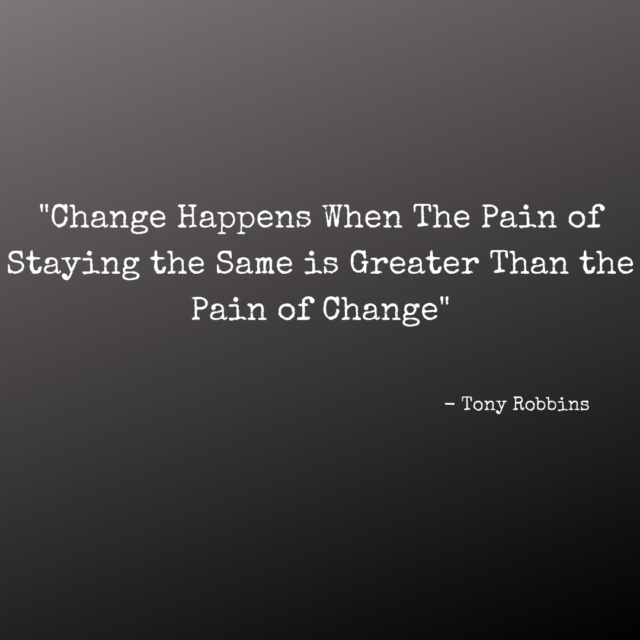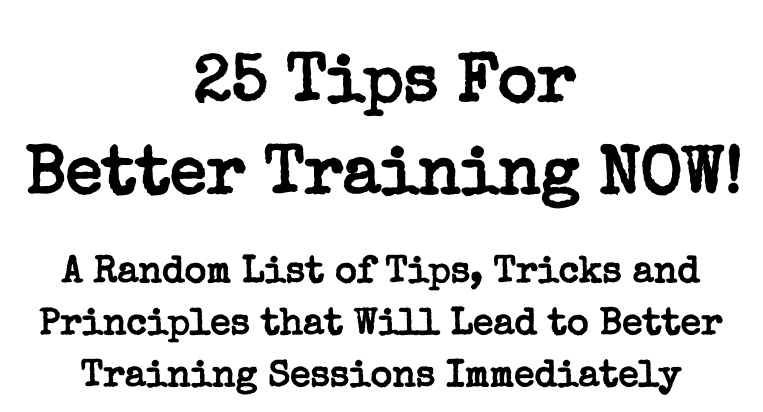TV Weight Loss Gurus are Bullshit Artists.
Watch any weight loss segment on TV or read any weight loss/ magic diet book and you’ll hear the same story,
“It’s not your fault”
followed with
“Do THIS magic thing and you’ll finally be everything you wanted“.
Just so we’re all on the same page:
THATS ALL BULLSHIT.
#1. If You’re Overweight, it’s 100% YOUR FAULT
That’s a good thing.
It means YOU have CONTROL over it.
I know, it’s not PC to say this these days, but think about the alternative.
ie. Your weight isn’t your fault.
Then WTF do you do If your weight is out of your control?
Hope, pray and just accept the fact that you’re screwed?
If it’s your fault, you can affect it.
#2. There is NO MAGIC
The 98% of nutritional science that matters for weight control has been KNOWN and shown to be consistent for literally
THOUSANDS OF YEARS
just because this dude, who has a ton of letters after his name, wrote a book, doesn’t really mean much for the veracity of its claims.
Who’s to say he/ she has ANY experience or specialized, evidence based, knowledge in the nutritional science/ biochemistry/ weight loss field.
Just because they refer to themselves as “Doctor” or “Researcher”, doesn’t make them an expert in a field (as Dr. Phil found out), then again, doesn’t mean they aren’t.
“Doctor” gets thrown around a LOT and doesn’t always refer to the credentialing you think it does.
Let us remember a “Doctor” (naturopathic “DR.”) created the Blood Type Diet
Which totally disregards digestion is basically just a bunch of bullshit.
“No evidence currently exists to validate the purported health benefits of blood type diets.”- Blood type diets lack supporting evidence: a systematic review.
There’s a Fiction section in every book store, it’s full of entertaining books.
So here’s what will work for weight loss 100% of the time.
Know Your Numbers
What’s the ONLY question the Sharks ask every entrepreneur?
“What Are Your Numbers?”

If you want to be successful in weight loss, you MUST be at a caloric deficit.
How the hell can you be in a caloric deficit if you don’t even have an idea of how many calories you burn everyday?
Answer: YOU CANT
How Many Calories DO I Need Each Day?
Most Accurate Answer:
I Don’t Know
True caloric expenditure is a really difficult/ intrusive to measure accurately.
Good thing you don’t need to do that to have success.
You can just use the quick and dirty method.
Your Weight in lbs (X)
9-10 if sedentary (little to no exercise and lots of sitting)
12-13 if lightly active (30- 60 minutes of moderate exercise a day, but lots of down time)
14-16 if active (60-90 minutes of moderate to intense exercise most days of the week, active through the day)
17-19 if HIGHLY active (60+ minutes of mostly intense exercise on most days and very active through the rest of the day on most, if not all days)
= Calories for the day.
Example (I’m using myself):
(Weight of 195lbs) X (Activity level of 17) = 3,315 calories per day
That’s pretty accurate and would need to be under that to lose weight.
Now that you know about how many calories you’re burning each day you need to know how many you’re ACTUALLY EATING.
Yes, that means…
Track Calories
Want to see people convulse uncontrollably before you?
Just tell them they should track their calories.
It’s like faith healing.
All of the sudden the Power Of The Calorie comes over them.
BS Objections to Calorie Counting
- It’s Difficult.
- Time Consuming
- I don’t know how many calories are in a serving of X, Y, Z,
Nope, it’s not, and you don’t need to know.
There are a gazillion apps that will track your calories and most of them have damn near every food ever on them.
Including restaurants.
And you can add your own foods.
It’s literally as difficult as,
You type the food in the search bar.
You put in how many servings.
You hit “save meal”, or some iteration of.
BAMN, done.
But, the TV Told Me Counting Calories Doesn’t Work…
Yeah, I know.
The Key to Weight Loss Is Diet Quality, Not Quantity, a New Study Finds – NY Times
But here’s the thing, they kinda buried the lead.
“Dr. Gardner said it is not that calories don’t matter. After all, both groups ultimately ended up consuming fewer calories on average by the end of the study, even though they were not conscious of it. The point is that they did this by focusing on nutritious whole foods that satisfied their hunger.
“I think one place we go wrong is telling people to figure out how many calories they eat and then telling them to cut back on 500 calories, which makes them miserable,” he said. “We really need to focus on that foundational diet, which is more vegetables, more whole foods, less added sugar and less refined grains.”
Ohh, so you’re telling me that you can eat a boatload more nutritious food than total crap and you’ll still be in a caloric deficit? #noshit
But you can also eat total crap and be in a caloric deficit.
“Imagine a diet of Twinkies, Doritos chips, and other foods high in sugar and saturated fats, and losing lots of weight on it. That is exactly what Mark Haub, a professor in human nutrition from Kansas State University did”- and he lost 27 pounds in ten weeks.“- Nutrition Professor Loses 27 Pounds On Junk Food Diet In 10 Weeks
HE COUNTED CALORIES.
So, NO, counting calories isn’t the end all-be all when it comes to weight management but ALL of the REAL WORLD evidence points to it being effective when practiced consistently.
“a reasonable target for consistency for self-monitoring within the context of a professional cognitive-behavioral treatment program may be self-monitoring all foods eaten on at least 75% of the days. If participants generally self-monitor on less than half of the days during participation in such programs, they may be very unlikely to succeed at weight loss both during the program and afterward.” –Further support for consistent self-monitoring as a vital component of successful weight control.
“The analysis of food log days of the participants with different levels of weight loss showed that a higher number of food log days per week was significantly associated with groups with higher levels of weight loss. Figure 5 shows the weekly mean food log days among the participants in the three outcome levels. Participants in the higher outcome levels logged their food a significantly higher number of days throughout the 6-month program than the lowest outcome group.” What Matters in Weight Loss? An In-Depth Analysis of Self-Monitoring
Why is Calorie Counting Effective?
It forces you to Self- Monitor which leads to becoming AWARE of what and how much you’re eating.
You LEARN what foods will fit into your daily allotment of calories.
You’ll start to make judgment calls and ask yourself,
“is that cupcake worth it?”
Maybe the answer is YES, you’ll just have to make it up somewhere else and that might mean you don’t get to have that glass of wine with dinner.
Do Have I To Count Calories Forever?
Of course not.
I’m going to let you in on a secret.
ALMOST NO ONE DOES
At least not all day, every day, forever.
Sure they do when they need or want to for accountability.
THAT is the ultimate goal of successful and sustained weight loss and management.
Being able to make consistently good choices, consistently.
Check in With Your Weight, Daily

This is another one that gets maligned in the media because it’s inconvenient.
I’m gonna break this to you.
Stepping on the scale in your bathroom every morning is not inconvenient.
If that’s inconvenient to you, you’re probably going to fail at losing weight or maintaining lost weight.
Daily Weighing is just another form of self monitoring.
Its a daily check in with what’s going on.
“The number of self-weigh-ins per week was identified as a significant predictor of weight loss (P<.001). Self-weighing at least three times per week is associated with higher weight loss. An even higher level of weight loss is associated when weighing more than five times per week. Evidence has shown that instructing participants to weigh in at least three times per week does increase weight loss during an active weight-loss period, and a higher frequency of weighing in is associated with greater weight-loss success” – What Matters in Weight Loss? An In-Depth Analysis of Self-Monitoring
The evidence is pretty clear on this one (of course there are outliers) weighing yourself DAILY especially if you’re doing this in combination with other weight management strategies works really well.
“Weighing every day led to greater adoption of weight control behaviors and produced greater weight loss compared with weighing most days of the week. This further implicates daily weighing as an effective weight loss tool.” – Weighing every day matters: daily weighing improves weight loss and adoption of weight control behaviors.
It’s just a daily check in so you can make real-time adjustments before things get out of hand.
Up a half pound, you think about if you should have that extra beer.
Maybe you do, maybe you don’t, but your THOUGHT about it, made your choice and can (usually) see the consequence of your action as early as the next morning.
You become AWARE of what you put in your mouth and how that affects your weight.
Every Step Counts
Just like every bite.
If you’re serious about weight-loss one of the most effective things you can do is FORCE yourself to do really stupid things more.
You’ve heard it before:
- Park farther away
- Take the stairs
- Stand vs sit
- Walk around the block after dinner
- Walk to lunch at work
By themselves none of these are going to burn hundreds of calories a day more.
But put them all together and you might get a few hundred to a thousand extra calories burned a week.
And that adds up over time.
1,000 cals/wk X 12 wks = 12,000cals
12,000cals/ 3,500cals= 3.4 lbs
And 1K calories a week isn’t that many folks.
We’re talking about 145 calories a day.
That’s it.
If you can find a way to burn an extra 145 calories a day, everyday, for 12 weeks.
You can be down about 3 and a half pounds.
Not earth shattering, but a pretty nice benefit from adding 30-40 minutes of moving to your day.
Force Yourself To Move More Or You’ll Move Less
Your body is a sneaky little bitch.
It doesn’t like to lose weight.
That bitch will do anything to hold onto its fat stores.
Including DECREASING your NEAT (Non-exercise adaptive thermogenesis) through the day.
*NEAT, it’s just all the other crap you do through the day, that isn’t exercise, that burns calories.
“NEAT corresponds to all the energy expended with occupation, leisure time activity, sitting, standing, ambulation, toe-tapping, shoveling snow, playing the guitar, dancing, singing, washing, and more.”- The Role of Non-exercise Activity Thermogenesis in Human Obesity
As you lose weight, restrict calories your body will protect its weight by naturally decreasing NEAT.
“well accepted that both REE (resting energy expenditure) and non-resting energy expenditure are affected by energy deprivation, which is supported by recent data from animal models (55, 58, 63). These findings are supported by results from the so-called Biosphere 2 experiment, where the authors demonstrated a major reduction of TEE (thermic effect of food) and spontaneous physical activity with body mass reduction over a two-year time period, which persisted after six months of body weight regain (31, 64). Demonstrated TEE reductions by adaptive thermogenesis in weight-regainers has been reproduced in other human studies (55). Of note, when subjects recover from starvation they spontaneously overeat and, moreover, if weight loss-induced adaptive thermogenesis persists (i.e. reduced NEAT), there is a significant risk of regaining weight and “overshooting” pre-starvation body mass (55). Thus, changes in non-resting energy expenditure with underfeeding appear to occur directionally so as to conserve body energy and return subjects to their initial body mass, as recently described in humans as the so-called “thrifty phenotype” compared to a “spendthrift phenotype” (65).” – The Role of Non-exercise Activity Thermogenesis in Human Obesity
That’s all nerd speak for,
You Will Naturally Move LESS When Losing Weight
Things as simple as:
- Fidgeting
- Toe taping
- Breaking down food
- Changing positions when you’re sitting
You’ll naturally do less of it as you lose weight…
If you’re going to be successful in weight management you need to FORCE extra movement into your life.
Otherwise you’ll start burning fewer calories through the day and run the risk of hitting the most difficult brick wall hurdle to get past…
The Plateau
Plateaus WILL happen, they are inevitable and when it comes to weight loss, early on, are usually very short-lived, 1-3 days.
But after a few weeks to a couple of months of consistent weight loss and you might hit a real plateau and be stuck there for several days to a couple of weeks.
That’s when frustration sets in and people tend to quit the “diet” and/ or exercise.
Almost always this leads to a weight “rebound” and 6 months later they end up back where they started.
Hell, maybe your plateau is a success and you’re purposefully stopping at a body weight you’re comfortable with.
Either way, when people stop losing weight they tend to rebound and the scale starts heading back up.
Why?
The Biggest Loser
Why do so many people on the Biggest Loser regain most of their weight?
“After 6 years, most subjects regained a significant amount of the weight lost during the competition, but there was a wide degree of individual variation and a mean weight loss of 11.9 6 16.8% (P 5 0.02) compared with baseline. All but one subject regained some of the weight lost during the competition and five subjects were within 1% of their baseline weight or above. Mean FM and FFM significantly increased in the 6 years since the competition but remained significantly below baseline.”- Persistent metabolic adaptation 6 years after “The Biggest Loser” competition.
Now the gurus told you they regained weight because they had permanently lower metabolisms and they were destined to regain their weight.
They couldn’t help it….
Wait, But What?
All of the sudden their bodies magically created excess calories and made these people 400lbs again.
*there are some very interesting things in this study about “metabolic adaptation” and the lowering of someone’s resting metabolic rate following extreme weight loss, but my point will hold.
Ohh wait, yeah that’s right, Dr. Strange, Master of the Mystic Arts, wasn’t involved with that study so no magic happened.
“The Biggest Loser” participants who were the most successful in maintaining lost weight had the greatest increase in PA (physical activity) after 6 years. Our results support previous recommendations that large and persistent increases in PA (physical activity) may be required for the long‐term maintenance of lost weight. – Increased Physical Activity Associated with Less Weight Regain Six Years After “The Biggest Loser” Competition
People tend to lose weight.
STOP.
And go back to their “normal”/ old/ familiar pattern of activity and eating. <——which too often is, none and too much.
They STOPPED the Diet and Exercise
That’s why they regained the weight.
Their body wasn’t out to get them.
They stopped the behaviors that had made them successful in the first place.
The second slice of pizza,
the cupcake after dinner,
an extra beer on the golf course.
All crept back in.
The nighttime walks.
Friday after work gym sessions.
Monday morning gym sessions
when you don’t feel like going….
All faded away.
Actions = Outcomes
Here’s the thing, if you have a weight problem,
YOUR PATTERN OF “NORMAL”, ISN’T.
One thing that’s for sure is you have to keep doing what you were doing for those results to stick.
If you go back to doing what you used to do, you’ll be right back where you were.
Yes, it might be hard.
It’s going to be inconvenient.
There’s going to have to be sacrifice.

That’s just the reality.
I’m not going to GuRu you, you’re going to have to give things up and take on new behaviors in order to change.
But if you:
- Count your Calories and learn about the types and volume of foods you eat,
- Check your weight daily to constantly keep tabs on where you’re going,
- Force movement into your days
- DON’T STOP when things get tough or you reach your goal
You CAN and WILL be really successful managing your weight.




